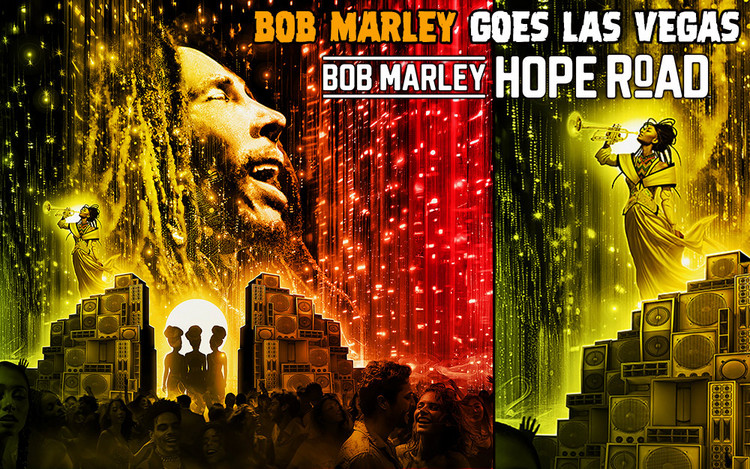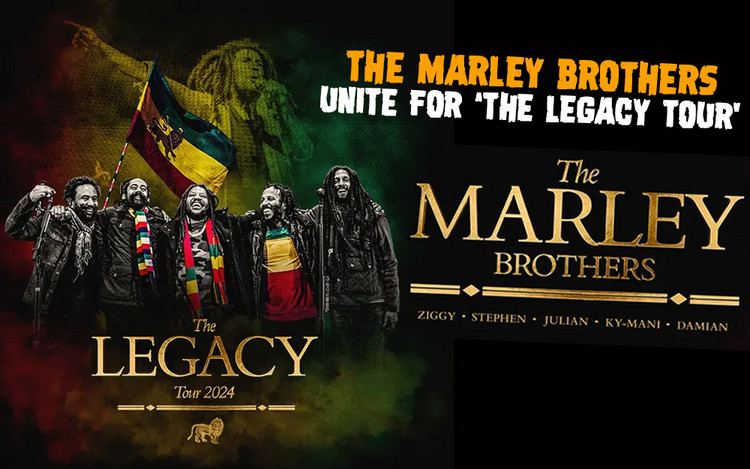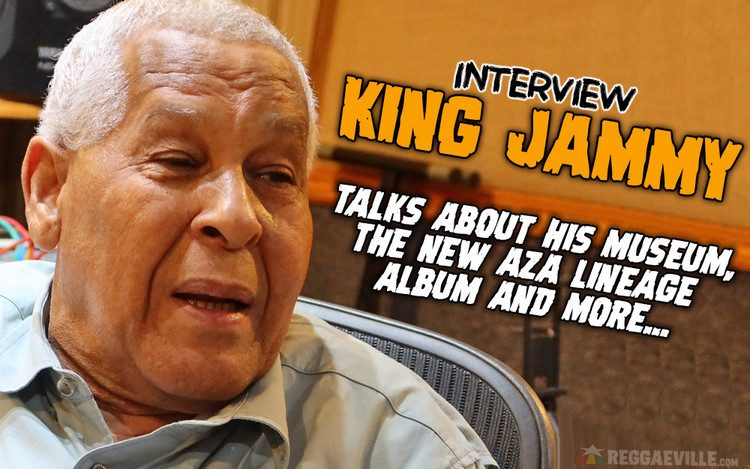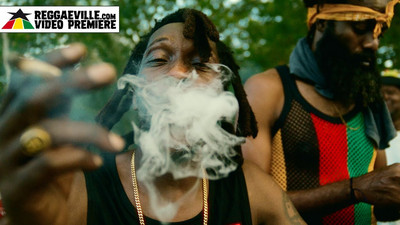Peter Broggs ADD
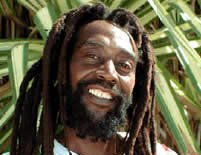
BIOGRAPHY
I was born a humble man in 1954 in Hanover, Westmoreland -- a small, peaceful area of the Jamaican countryside. It was here that I started to sing for myself -- outside, surrounded by nature. Otis Redding was my favorite singer and I loved "I've Got Dreams to Remember You By". I Stayed in the countryside until I was 17, then moved to Kingston where I shared a tiny rotting shack with my brother, and got a job in a factory. When you're a young Jamaican and you're smack bang in the middle of the countryside, nothing happens and you have only one desire -- to leave and do something with your life. So, after a while, you head for the towns, where you can try and make things happen. And that's what I did.
When I first arrived in Kingston, I stopped singing. Too many people, too much noise everywhere -- I felt intimidated. Gradually, over time, I started singing again -- in the morning, on the way to work and in the evening, on the way home. Then, after a while, I started singing at work and it was there I wrote my first two songs, 'Vank Out' and 'African Sister'. I started to grow my dreads -- it was the beginning of the 1970s, and I had begun to mix with the Rasta community. We'd sit together around the fire in the ghetto, smoking herb in the challis and talking about God, about Jah Rastafari, the Almighty. We reasoned, read passages from the Bible and evoked our African roots. We were reviving our culture. It was there that I realised that I'd always been a Rasta. I just needed the spark that would reveal this to me. All those evenings spent with the old Rastas gave me the key. I began to understand who I was and what spiritual voice I should follow. At this time, I wasn't in contact with any musicians, I just sang for myself. Then one day I was sacked from my job because of my dreads -- and that was how everything started. I said to myself that, with my redundancy money, I must throw myself seriously into music. It was now or never.
I went to see a guy I knew on the corner of Chancery Lane and told him I wanted to record a song. He took me uptown to buy two cassettes: one for the music and one for mixing. In those days, you could hire musicians for as little as 20 Jamaican dollars and I managed to get some of the Roots Radics. At that time, they still weren't the complete line-up, but I had the good fortune to get Bingy Bunny, Flabba Holt, and Dumbo. I reserved a bit of studio time at the Channel One studio in Maxfield Avenue and we recorded 'Vank Out'. I paid for the pressing of the 45s and put them out on a white label. I started selling them in the street near the studio, at Randy's -- everywhere. A few months later, I recorded and distributed 'African Sister' the same way, but things started to get difficult. The pressure was too great and it was costing me too much money. I didn't earn much and found the stress, hunger, and pain of it too much. I was forced to go back to the ghetto, spending my nights with the other Rastas, smoking challis until three in the morning, singing, writing, praying, and praising Jah, eating ital. Living in the ghetto was like living in shit, but we survived, or at least tried.
One day I met Bim Sherman at the record-pressing factory. That was in 1975 or 1976. He said, "Man, I heard your song 'Vank Out' and I like the way you sing. I really like your style and sound. Believe me, you should keep it up." So I started singing again with renewed confidence. Along with Bim Sherman and sacks of our singles, we left to do a tour of all the studios: King Tubby's, Treasure Isle, Channel One, Tuff Gong -- the cream. We sold our songs in the studios' courtyards. Miss Patsy Chin from Randy's let me sell them near her shop, too. She helped me a lot by getting me to do odd jobs for her in exchange for a little money.
People started to hear my songs and know more about me. I started chilling with Gregory Isaacs. Then one day, Bingy Bunny came to me and said, "Peter, I'm going on tour in London with Gregory and I want you to record a few songs for me to take over there for people to hear." I said OK then, let's go! The Roots Radics laid down the music to 'Forward Natty Dread', 'I Don't Know', and 'Never Forget Jah' in two hours at Channel One. Then a few weeks passed before we could put the vocals down and mix everything, which we did at King Tubby's studio in Waterhouse. When Bunny finally managed to book Tubby's, it was only for two hours -- two hours for three songs! When we arrived, there was a singer in the studio I didn't know, who was having a nightmare and eating into my time. He was using the same beat as 'Forward Natty Dread' so I went outside to practice my singing. Just then, Bingy bounced out of the studio and told me too go in and sing what I'd just sung immediately, exactly the same. The other guy had to move over for me, and I went in and did it in one take. I sang my other two songs at the end, and my work was done. Man -- in quarter of an hour it was done!
I slipped in another couple of things of my own, too. I was about leave the booth when I heard, "D'you want to do an album?" through the cans. "If I send you the riddims, have you got enough lyrics for an album?" I screamed out, "YEEESSS MAAAAAAN! Run de tracks!" So they sent through the riddims and I added the words. I did everything in one take, every song. (And that's why the album's called Progressive Youth, because I'd moved steadily forward, without any major disasters.) The boys in the studio had never seen anything like me before! Approaching the 10th track, I heard, "Peter, give us this one DJ style and it will be 10! Try it!" I don't know why they said that, but anyway, I heard "deejay dis one and make it 10" and that's why 'Give Thanks' is in a DJ style. It was totally improvised -- the only song I'd ever done that way. All my singles were then distributed in England on the Ital label and featured such renowned musicians as Bingy Bunny on guitar, or course, the bassist from the Roots Radics Flabba Holt, pianist Gladstone Anderson, drummer Style Scott, and Bongo Herman. [The album Progressive Youth has since become a vinyl-collector's rarity.]
In late 1979 -- early 1980, I was hanging out in the forecourt of Channel One studios when I got a chance to cut a vocal. In the end, I recorded nine singles with Coxsone, and only one was released -- 'Sing A New Song', which appeared on the B-side of a 12" by Brigadier Jerry called 'Every Man Is My Bredren Still'. The other songs never saw daylight. I then recorded with Prince Far I. We often met in the studio. They let us get on and do what we wanted. 'Jah Golden Throne' and 'I A Field Marshall', recorded with the Roots Radics, both came from these sessions. A few months later, Doctor Dread asked me if I had enough for an album. I said yes and he booked Studio One, paid the Radics, and we went into the studio. [A mix of hypnotic roots and dancehall, the eight masterpieces remain, to this day, arguably his most beautiful work Broggs followed up with the Rise And Shine album in 1985, featuring his experimental 'Rastaman Chant Nyahbingi'. The complex and astonishing 'Cease The War' was released in 1987 and the excellent and lesser-known 'Reasoning' in 1990 -- recorded at Tuff Gong Studios, mixed at Lion and Fox.]
I've always liked to put across positive messages, those that evoke God, those that show to people the existence of a beautiful and living God. The words that come out when I sing, Jah puts there for me. I am only a servant, and I try, thanks to Him, to guide His children down the right path. My whole career has been in the name of Jah Rastafari. I am a messenger of Jah. All I can do is use the gifts he gave me.
Peter Broggs
Exerpt from article written by Stephane Faure, Editing and Translation by Motion Records
©2000 Motion Records
Peter Broggs 1954 - 19.12.2015
I was born a humble man in 1954 in Hanover, Westmoreland -- a small, peaceful area of the Jamaican countryside. It was here that I started to sing for myself -- outside, surrounded by nature. Otis Redding was my favorite singer and I loved "I've Got Dreams to Remember You By". I Stayed in the countryside until I was 17, then moved to Kingston where I shared a tiny rotting shack with my brother, and got a job in a factory. When you're a young Jamaican and you're smack bang in the middle of the countryside, nothing happens and you have only one desire -- to leave and do something with your life. So, after a while, you head for the towns, where you can try and make things happen. And that's what I did. When I first arrived in Kingston, I stopped singing. Too many people, too much noise everywhere -- I felt intimidated. Gradually, over time, I started singing again -- in the morning, on the way to work and in the evening, on the way home. Then, after a while, I started singing at work and it was there I wrote my first two songs, 'Vank Out' and 'African Sister'. I started to grow my dreads -- it was the beginning of the 1970s, and I had begun to mix with the Rasta community. We'd sit together around the fire in the ghetto, smoking herb in the challis and talking about God, about Jah Rastafari, the Almighty. We reasoned, read passages from the Bible and evoked our African roots. We were reviving our culture. It was there that I realised that I'd always been a Rasta. I just needed the spark that would reveal this to me. All those evenings spent with the old Rastas gave me the key. I began to understand who I was and what spiritual voice I should follow. At this time, I wasn't in contact with any musicians, I just sang for myself. Then one day I was sacked from my job because of my dreads -- and that was how everything started. I said to myself that, with my redundancy money, I must throw myself seriously into music. It was now or never. I went to see a guy I knew on the corner of Chancery Lane and told him I wanted to record a song. He took me uptown to buy two cassettes: one for the music and one for mixing. In those days, you could hire musicians for as little as 20 Jamaican dollars and I managed to get some of the Roots Radics. At that time, they still weren't the complete line-up, but I had the good fortune to get Bingy Bunny, Flabba Holt, and Dumbo. I reserved a bit of studio time at the Channel One studio in Maxfield Avenue and we recorded 'Vank Out'. I paid for the pressing of the 45s and put them out on a white label. I started selling them in the street near the studio, at Randy's -- everywhere. A few months later, I recorded and distributed 'African Sister' the same way, but things started to get difficult. The pressure was too great and it was costing me too much money. I didn't earn much and found the stress, hunger, and pain of it too much. I was forced to go back to the ghetto, spending my nights with the other Rastas, smoking challis until three in the morning, singing, writing, praying, and praising Jah, eating ital. Living in the ghetto was like living in shit, but we survived, or at least tried. One day I met Bim Sherman at the record-pressing factory. That was in 1975 or 1976. He said, "Man, I heard your song 'Vank Out' and I like the way you sing. I really like your style and sound. Believe me, you should keep it up." So I started singing again with renewed confidence. Along with Bim Sherman and sacks of our singles, we left to do a tour of all the studios: King Tubby's, Treasure Isle, Channel One, Tuff Gong -- the cream. We sold our songs in the studios' courtyards. Miss Patsy Chin from Randy's let me sell them near her shop, too. She helped me a lot by getting me to do odd jobs for her in exchange for a little money. People started to hear my songs and know more about me. I started chilling with Gregory Isaacs. Then one day, Bingy Bunny came to me and said, "Peter, I'm going on tour in London with Gregory and I want you to record a few songs for me to take over there for people to hear." I said OK then, let's go! The Roots Radics laid down the music to 'Forward Natty Dread', 'I Don't Know', and 'Never Forget Jah' in two hours at Channel One. Then a few weeks passed before we could put the vocals down and mix everything, which we did at King Tubby's studio in Waterhouse. When Bunny finally managed to book Tubby's, it was only for two hours -- two hours for three songs! When we arrived, there was a singer in the studio I didn't know, who was having a nightmare and eating into my time. He was using the same beat as 'Forward Natty Dread' so I went outside to practice my singing. Just then, Bingy bounced out of the studio and told me too go in and sing what I'd just sung immediately, exactly the same. The other guy had to move over for me, and I went in and did it in one take. I sang my other two songs at the end, and my work was done. Man -- in quarter of an hour it was done! I slipped in another couple of things of my own, too. I was about leave the booth when I heard, "D'you want to do an album?" through the cans. "If I send you the riddims, have you got enough lyrics for an album?" I screamed out, "YEEESSS MAAAAAAN! Run de tracks!" So they sent through the riddims and I added the words. I did everything in one take, every song. (And that's why the album's called Progressive Youth, because I'd moved steadily forward, without any major disasters.) The boys in the studio had never seen anything like me before! Approaching the 10th track, I heard, "Peter, give us this one DJ style and it will be 10! Try it!" I don't know why they said that, but anyway, I heard "deejay dis one and make it 10" and that's why 'Give Thanks' is in a DJ style. It was totally improvised -- the only song I'd ever done that way. All my singles were then distributed in England on the Ital label and featured such renowned musicians as Bingy Bunny on guitar, or course, the bassist from the Roots Radics Flabba Holt, pianist Gladstone Anderson, drummer Style Scott, and Bongo Herman. [The album Progressive Youth has since become a vinyl-collector's rarity.] In late 1979 -- early 1980, I was hanging out in the forecourt of Channel One studios when I got a chance to cut a vocal. In the end, I recorded nine singles with Coxsone, and only one was released -- 'Sing A New Song', which appeared on the B-side of a 12" by Brigadier Jerry called 'Every Man Is My Bredren Still'. The other songs never saw daylight. I then recorded with Prince Far I. We often met in the studio. They let us get on and do what we wanted. 'Jah Golden Throne' and 'I A Field Marshall', recorded with the Roots Radics, both came from these sessions. A few months later, Doctor Dread asked me if I had enough for an album. I said yes and he booked Studio One, paid the Radics, and we went into the studio. [A mix of hypnotic roots and dancehall, the eight masterpieces remain, to this day, arguably his most beautiful work Broggs followed up with the Rise And Shine album in 1985, featuring his experimental 'Rastaman Chant Nyahbingi'. The complex and astonishing 'Cease The War' was released in 1987 and the excellent and lesser-known 'Reasoning' in 1990 -- recorded at Tuff Gong Studios, mixed at Lion and Fox.] I've always liked to put across positive messages, those that evoke God, those that show to people the existence of a beautiful and living God. The words that come out when I sing, Jah puts there for me. I am only a servant, and I try, thanks to Him, to guide His children down the right path. My whole career has been in the name of Jah Rastafari. I am a messenger of Jah. All I can do is use the gifts he gave me. Peter Broggs
Exerpt from article written by Stephane Faure, Editing and Translation by Motion Records




